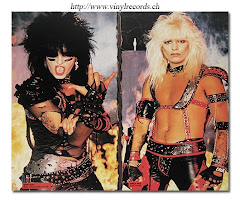In the film, Boys in the Hood, we see many male characters, raised mainly in the same area, who portray masculinity. However, some of these traits are shown in a positive light, and some are shown in a negative light. For instance, we do not doubt that Furious Styles, father of Tre, is a figure of masculinity. We see him as a single man, raising his son and teaching him morals. Though he is unlike the prisoners described in Sabo’s article, Furious Styles portrays his masculinity in a way that which “scripts masculinity by supplying direction, role models, props, motivations, rewards, and values” (110). Tre knows this and also knows that he must study hard and treat women “right”. We also see Ricky, a boy who, unlike his brother, was never willing to pick a fight. Even in his teenage years, we see him fathering a young child yet also striving to get a scholarship to play football at the collegiate level in order to obtain some financial security. On the other hand, some of the male characters in this movie personify the flip side of masculinity. For instance, Ricky’s brother, Doughboy and his friends portray the tough guys, the “good-guys” fighting against evil. They use violence to defend the innocent. From their childhood days, Doughboy is constantly sticking up for his brother during potentially violent incidents such as the time the older boys took their football. From that point on, we see Doughboy as the physical one, the one who will eventually avenge his brother’s death, thus leading to his own. I believe Doughboy represents the prisoner’s Sabo interacted with very well. He is
This movie also shows the African American community living in poverty, and speaking in a way, which makes us assume a lack of education (with the exception of the Styles family). They often use violence, from mothers slapping their children to gang violence. I think society has seen some of these elements as increasing the masculinity of the male figure. Doughboy shoots his brother’s murderers. Although this can be seen as a immature act, this notion is ignored by the fact that it can also be seen as heroic, a trait which is the epitome of masculinity.
The women in this film are mostly passive agents. Their whole existence basically had to do with the sexual desires of the male characters. The role of Brandi, Tre’s girlfriend, is used to gauge Tre’s ability to withhold having sex with women. Brandi refuses to have sex with Tre due to her religion, and Tre has to deal with this. She is an “outsider within”. Brandi takes no part in the constant battles in their neighborhood, yet she is in the center of it.


No comments:
Post a Comment
Note: Only a member of this blog may post a comment.